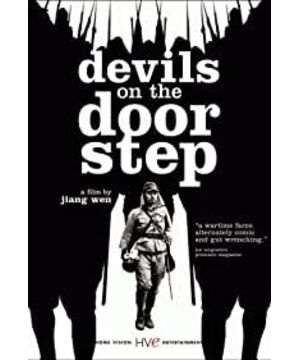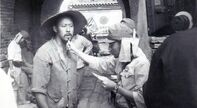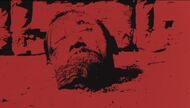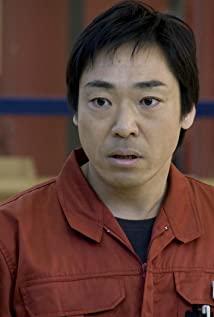Liu killed his compatriots with one knife, but he could not kill the devil who was waiting for him, satirizing the court eagle and dog in the civil war. It shows that cowardly Chinese are not as resistant as animals.
The change of the captured Japanese army's flower house from the toughness of seeking quick death to the single-minded survival can be called a historical fable: following the disappearance of Xianbei, Mengyuan, and Manchu (Manchu characters disappeared, the children of the Eight Banners became synonymous with corruption and depravity. , how sturdy), it once again showed what kind of bird the nation looked like after Sinicization.
It is amazing to arrange the handsome and dashing Wu Dawei to play the national army major on crutches: the KMT, which is soft on the outside and ruthless on the inside, stands by American friends and responds to the victory of the Anti-Japanese War. The market is unstable, and the building will collapse.
Every gesture of the film is poetry, and every metaphor is so natural and strong, but the plot of killing the Japanese prisoners of war at the end is too bizarre and does not conform to the film's dark, cold, and realistic style. It is a pity that Cannes failed to win the Palme d'Or. . However, the overall artistic and ideological quality of the film is unparalleled in the Chinese film industry.
A true master not only kills tyrants, but also kills grass-roots people; how can cheap and shallow sympathy be worthy of past suffering and sacrifice?
View more about Devils on the Doorstep reviews










